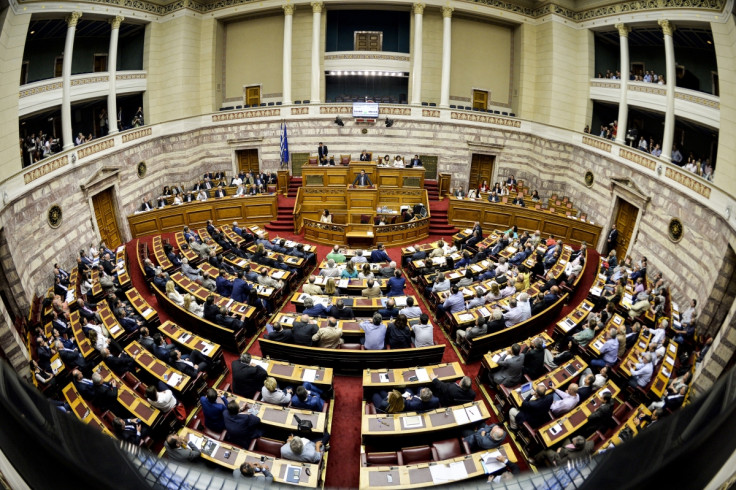Greece debt crisis: Parliament to debate economic reforms as next eurogroup bailout secured

Economic reform proposals will be set out in front of the Greek parliament after the indebted country agreed on a deal with its eurogroup creditors. The government is facing a likely reluctant group of MPs on Thursday (19 October).
The €12bn (£8.41bn, $12.8bn) bailout portion is part of a larger €68bn deal signed in July. The agreement includes a series of drastic reforms for the country's economic policies, including savings to public departments and changes to the pensions scheme.
Greece clashed with the eurogroup over bank overhauls and housing repossession policies. The country's government is expected to have a hard time trying to push the reforms through parliament.
Greek PM Alexis Tsipras was firm on securing 70% of houses, protecting them from repossession by the banks. After eurogroup talks, the government compromised and agreed on a 60% threshold instead.
Eurogroup countries have already sent €13bn to Greece ahead of the snap elections in September. Tsipras's Syriza party managed to win their second election in less than a year.
The left-wing group brought down two governments in less than 12 months. First, it took down the pro-austerity rulers in 2014, after which it had to make major concessions to the European Central Bank, the International Monetary Fund and the Eurogroup.
Pierre Moscovici, European commissioner for financial and economic affairs, said that the agreement represented a good deal for the Greek people. "It was not the most simple discussion," he admitted to reporters. "We're aware of the need to protect the most vulnerable and poor people in Greece."
Eurogroup president and Dutch finance minister Jeroen Deijsselbloem took to twitter to say he was happy with the results of the talks: "Good news. Substantive agreement between Greece and institutions. EWG discussed state of play and welcomed the progress made eurogroup."
Welcomes good progress in talks #Greece & institutions, agreement on many issues, EWG will convene on Tuesday, in line mandate #eurogroup
— Jeroen Dijsselbloem (@J_Dijsselbloem) November 15, 2015Good news. Substantive agreement between #Greece & institutions. EWG discussed state of play and welcomed the progress made #eurogroup
— Jeroen Dijsselbloem (@J_Dijsselbloem) November 17, 2015© Copyright IBTimes 2024. All rights reserved.






